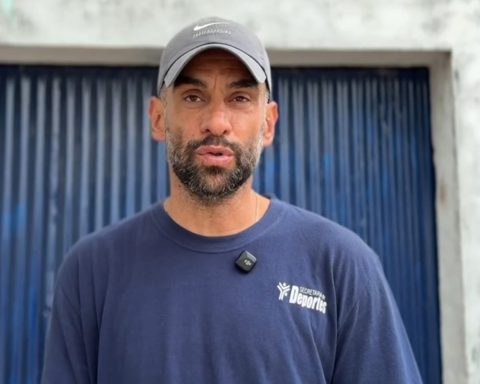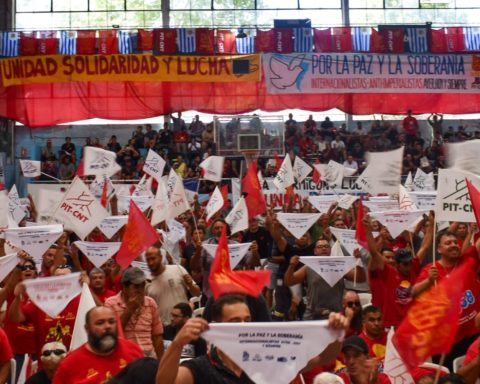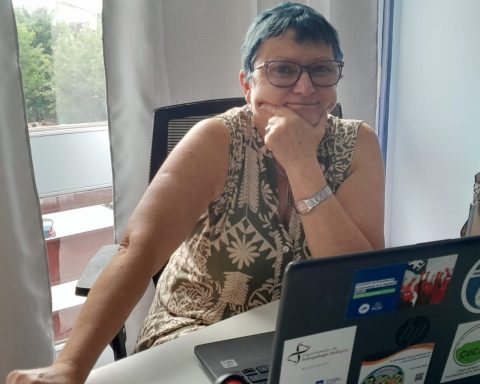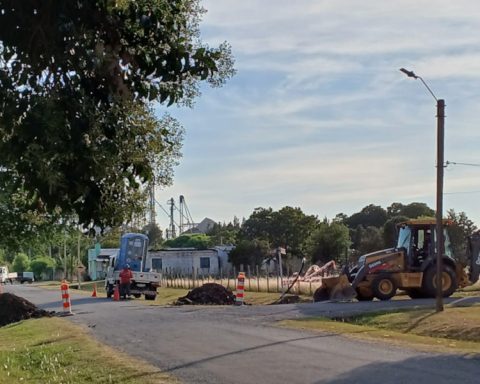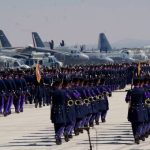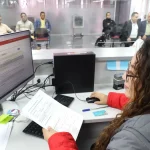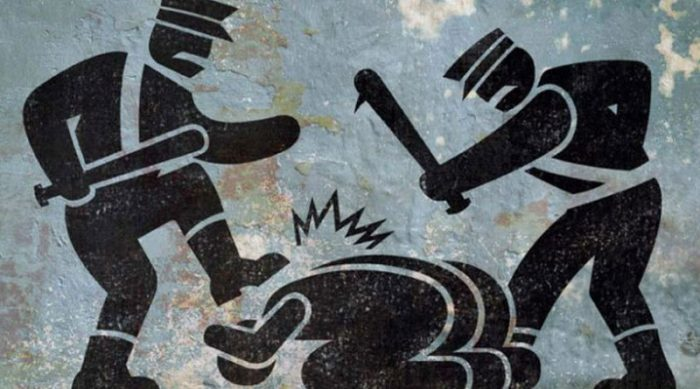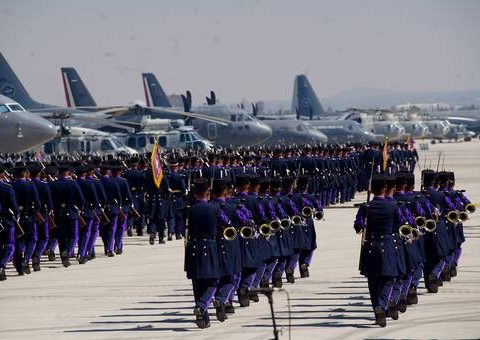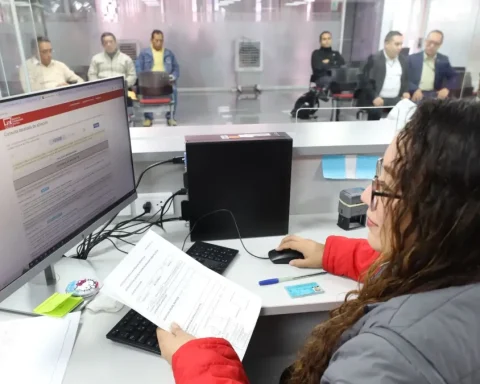The diplomatic representatives of the five Arab states accredited in Uruguay they told the President Luis Lacalle Pou its discrepancy with the government decision to open a commercial office in Jerusalem and they asked him to review the way in which Uruguayan diplomacy is voting at the United Nations on the question of Palestine, two expressions a pro-Israeli policy of this government.
Ambassadors Abou Bakr Mohamed Hafny Mahmoud (Egypt), Nadya Rasheed (Palestine), Eyad Ghazi Hakeem (Saudi Arabia), Ali Al-Ghazzawi (Lebanon) and the business assignment of qatarAhmad Almohannadi.
The Palestinian ambassador explained to The Observer that the delegation attended on behalf of the Arab Leaguean organization of 22 states that ranges from the African Maghreb to the Arabian Peninsula, and that the meeting served to raise issues on which they will continue to speak.
Rasheed pointed out that there were two central aspects in the conversation with the president, which he classified as very good.
In the first place, they expressed their disagreement with the position assumed by the Uruguayan government in the voting at the United Nations – in particular the Fourth Committee – around the so-called question of Palestine. The group of Arab diplomats understands that there was a “change” with respect to the traditional position of Uruguay that does not live up to that reputation as “champion of human rights”, Rashed said.
According to a survey carried out by The Observer based on information from the United Nations digital library, from the 25 votes that there were on different matters related to the Israeli-Palestinian and Israeli-Arab conflict between 2020 and 2022 in New York, Uruguay abstained on 15 occasions and the other 10 voted in the affirmative. This includes discussions around Jerusalem and the occupied territories in the Golan Heights.
In the Fourth Committee, which deals with matters on Special Policy and Discrimination, the alignment with Israel shines more significantly. there was 13 votes in the last two sessions in which Uruguayan diplomacy abstained in nine of them and voted for the positive in the remaining four.
Meanwhile, in the United Nations General Assembly there were eight resolutions, of which Uruguay abstained in six and supported two.
However, in the Human Rights Council that works in Geneva, Uruguay’s position was one of continuity. Of the nine votes that took place in 2020 and 2021 (this year it is no longer a member of that body), Uruguay voted in favor of Palestinian interests seven times and abstained twice which involved a statement on the human rights situation in the Golan.
Jerusalem
The second aspect that the ambassadors of Arab states brought to the table was their disagreement with the government’s manifest intention to open a commercial office in Jerusalem, as other states that maintain an openly pro-Israeli policy have done.
Several Latin American countries have opened commercial offices in Jerusalem, after the US government of Donald Trump decided in 2017 to move the diplomatic mission from Tel Aviv and Guatemala, Honduras and Kosovo followed suit. Presidents Jair Bolsonaro and Mario Abdo Benítez decided to open offices in Brazil and Paraguay respectively in 2019, while Colombian Iván Duque announced it in November 2021.
Before taking office and in different instances –private and public– the president committed himself to the local Jewish community and diplomatic representatives of Israel to open the office, which constitutes a symbolic gesture of friendship.
Lacalle Pou had mentioned this idea during the electoral campaign at a meeting organized by the Israeli Central Committee in September 2019. At that event, all the candidates were asked about their position regarding the possibility of moving the embassy to the historic city. The then-candidate pointed out that a move was not in his plans, but instead he talked about setting up commercial offices.
“When the UN ruling took place, we participated in international forums and we have to comply with the regulations and with the mandates. It is clear to me that for the Israelis the capital is Jerusalem, but I cannot commit myself today to act in that way. Some countries have advanced in commercial offices”Lacalle Pou said at the time. After being elected, he continued that purpose and communicated it to the interested parties.
The last time he alluded to this commitment was in September of this year when he received the Jerusalem Prize from the Zionist Organization of Uruguay (OSU). “Before the mandate ends, we will be setting up an innovation and trade office in Jerusalem.”said.
Although on the ground Jerusalem is already a divided city, it remains a disputed territory and one of the four key issues in any negotiations that seek to end the conflict between Israelis and Palestinians.
The holy city, which is of transcendental importance to Judaism, Christianity and Islam for its historical and religious sites, houses the main institutions of the Israeli government and is claimed by both Palestinians and Israelis as the capital of their states.


